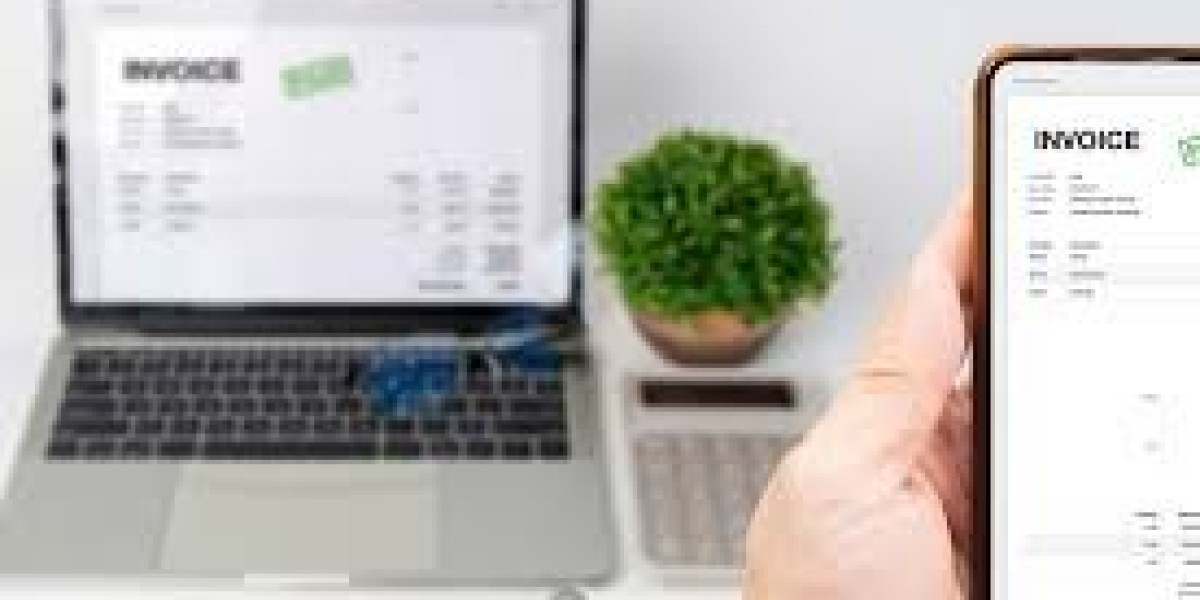Small and Medium Enterprises (SMEs) face numerous challenges when it comes to managing finances. Traditional accounting methods are time-consuming, error-prone, and lack real-time data access. That's where cloud accounting software steps in, offering a streamlined and efficient way to handle financial tasks. In this article, we explore the benefits, features, and importance of cloud accounting software for SMEs.
What is Cloud Accounting Software?
Cloud accounting software is a web-based accounting solution that allows businesses to manage their financial data over the internet. Unlike traditional desktop software, cloud-based systems store data on remote servers and enable users to access it anytime, anywhere, from any device with an internet connection.
Why SMEs Should Choose Cloud Accounting
SMEs often operate with limited resources, making efficiency a top priority. Cloud accounting software provides numerous advantages that help small businesses thrive, including:
● Cost-effectiveness
● Real-time collaboration
● Automatic updates
● Enhanced data security
These features empower SMEs to focus on growth rather than spending time on manual accounting tasks.
Key Features of Cloud Accounting Software
A good cloud accounting platform offers a wide range of features tailored for SMEs. These include:
● Invoicing and billing: Automate the creation and sending of professional invoices.
● Expense tracking: Monitor and categorize business expenses in real time.
● Bank reconciliation: Sync bank accounts and reconcile transactions easily.
● Financial reporting: Generate income statements, balance sheets, and cash flow reports.
● Inventory management: Keep track of stock levels and movements.
● Multi-user access: Allow multiple team members or accountants to access data simultaneously.
Benefits of Cloud Accounting Software for SMEs
1. Accessibility and Flexibility
With cloud accounting, business owners and their teams can work from anywhere. Whether in the office, at home, or on the go, financial data is always accessible. This flexibility is especially valuable in today’s hybrid and remote working environments.
2. Real-Time Data Insights
Cloud accounting tools provide real-time updates, giving SMEs instant access to the latest financial information. This allows for faster decision-making and better financial planning.
3. Enhanced Security
Leading cloud providers use advanced encryption, multi-factor authentication, and secure backups to ensure data safety. This level of security often surpasses what small businesses can achieve on their own with desktop software.
4. Reduced IT Costs
Since cloud solutions are hosted online, there’s no need for expensive hardware or IT maintenance. Updates are handled automatically by the provider, reducing the burden on SMEs.
5. Scalability
As a business grows, cloud accounting software can scale with it. Whether you're adding users, increasing data storage, or expanding functionality, cloud systems can adapt without major disruptions.
How to Choose the Right Cloud Accounting Software
When selecting a cloud accounting solution, SMEs should consider:
● Ease of use: The software should have an intuitive interface and easy navigation.
● Features: Choose a solution that meets your specific business needs.
● Customer support: Reliable customer service is essential for resolving issues quickly.
● Integration: Ensure it integrates with other business tools like CRMs, payroll systems, or eCommerce platforms.
● Pricing: Opt for transparent pricing with no hidden fees.
One excellent example of a trusted platform is Cloud Accounting Software for SMEs, which offers robust features, real-time insights, and user-friendly functionality specifically designed for small businesses.
Cloud vs. Traditional Accounting Software
Let’s look at how cloud accounting stacks up against traditional desktop-based accounting software:
Feature | Cloud Accounting | Traditional Software |
Accessibility | Anywhere, anytime | Limited to installed devices |
Updates | Automatic | Manual |
Collaboration | Multiple users in real-time | Limited or single-user |
Data Backup | Regular, secure cloud backups | User-dependent |
Cost Structure | Subscription-based | One-time or annual license |
As shown in the table, cloud accounting offers more advantages, especially for SMEs seeking flexibility and efficiency.
Common Concerns About Cloud Accounting
Despite its benefits, some SMEs hesitate to switch to the cloud. Common concerns include:
● Data privacy: Business owners worry about storing sensitive information online.
● Internet dependency: Access requires a stable internet connection.
● Learning curve: Some users may take time to adapt to new software.
However, modern cloud platforms have addressed these concerns with robust security, offline access features, and intuitive user interfaces.
The Future of Accounting is in the Cloud
As digital transformation continues, cloud accounting will become the norm rather than the exception. SMEs that embrace this shift will benefit from:
● Improved financial accuracy
● Faster reporting
● Seamless compliance with tax regulations
● Greater operational efficiency
Accounting technology is evolving, and staying ahead means adopting tools that can grow with your business.
Real-Life Use Cases of Cloud Accounting in SMEs
Case 1: Freelance Designer
A freelance designer uses cloud accounting to create invoices, track payments, and generate tax reports, all from their smartphone.
Case 2: Retail Store
A small retail store integrates its cloud accounting software with inventory management, ensuring that stock levels and sales data are always accurate and up to date.
Case 3: Consulting Firm
A consulting firm with remote employees allows team members and accountants to collaborate in real time using cloud tools, reducing delays and improving financial transparency.
Conclusion
Cloud accounting software has become an essential tool for SMEs aiming to streamline financial processes, improve data accuracy, and make informed business decisions. It offers flexibility, real-time collaboration, and cost-effective solutions that can be tailored to your business needs.
By embracing cloud technology, SMEs can stay competitive and agile in an increasingly digital world. Whether you're a startup or a growing enterprise, the right accounting software can make all the difference.
For a reliable and feature-rich platform tailored for small businesses, consider Cloud Accounting Software for SMEs.






